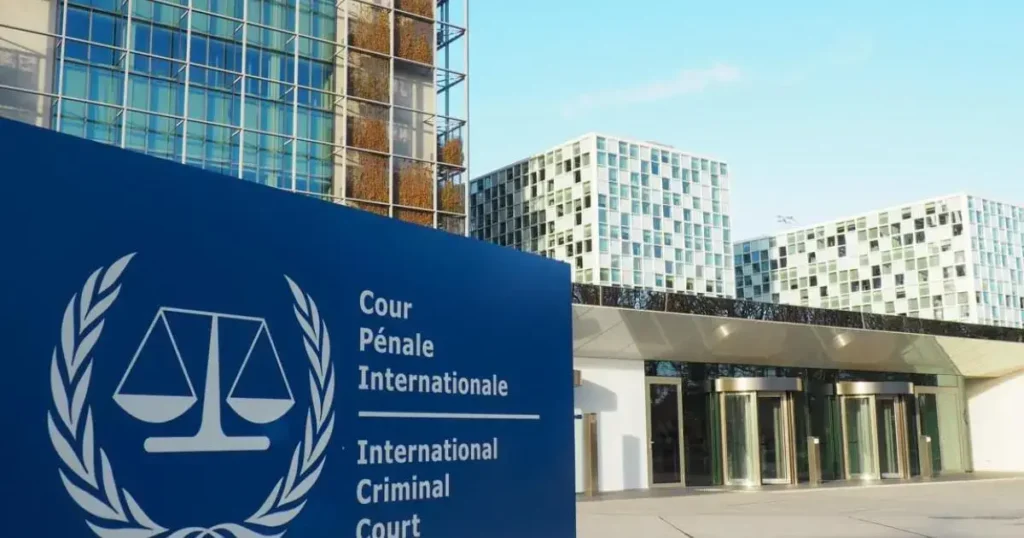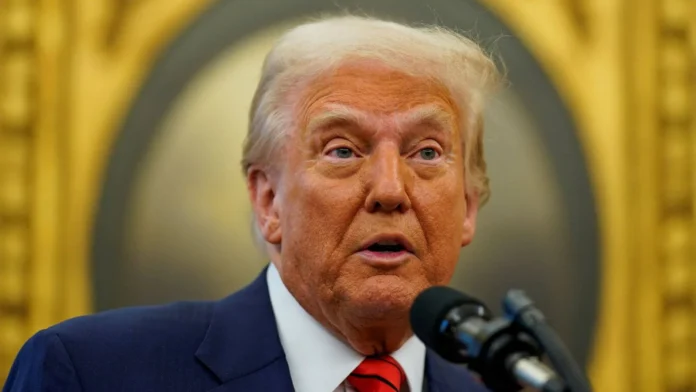Introduction
The Trump administration’s ICC sanctions have triggered widespread international condemnation, with 79 countries, including Canada, Germany, and France, publicly rejecting the move. These sanctions, aimed at International Criminal Court (ICC) officials and their families, have been criticized for undermining global justice and eroding the international rule of law. In this article, we’ll explore the reasons behind the sanctions, the global response, and their potential long-term consequences.
Why the Trump Administration Imposed ICC Sanctions
On June 11, 2024, former U.S. President Donald Trump signed an executive order imposing financial sanctions and visa restrictions on ICC staff and their families. The administration justified these measures by claiming that the ICC had engaged in illegitimate and politically motivated actions against the United States and Israel.
The sanctions followed ICC investigations into alleged war crimes committed by U.S. troops in Afghanistan and by Israeli officials in the Gaza Strip. According to Trump’s executive order, these actions posed a direct threat to American and Israeli sovereignty.
Key Reasons for the Sanctions:
- U.S. and Israeli Non-Participation – Neither the United States nor Israel are signatories to the Rome Statute, the treaty that established the ICC.
- Afghanistan War Crimes Investigation – The ICC’s decision to probe alleged war crimes by U.S. forces in Afghanistan was a key trigger.
- Gaza War Crimes Allegations – In November 2023, the ICC issued arrest warrants for Israeli Prime Minister Benjamin Netanyahu and Defense Minister Yoav Gallant, accusing them of using starvation as a method of warfare.
- Safeguarding U.S. Military Personnel – The administration argued that the ICC’s actions posed a direct threat to American service members and officials, making them vulnerable to “unwarranted scrutiny and potential detainment.”
Global Backlash: 79 Countries Reject U.S. Sanctions
In response to the Trump administration’s decision, a coalition of 79 countries, including major U.S. allies, signed a joint statement condemning the move.
Main Concerns Raised
- Threat to International Justice – Countries argued that the sanctions could increase impunity for war crimes and crimes against humanity.
- Risk to Court Officials – The measures were seen as a direct attack on the safety and independence of ICC judges, prosecutors, and investigators.
- Erosion of International Law – Critics warned that sanctioning an international tribunal undermines legal frameworks that uphold accountability worldwide.
Notable Supporters of the ICC
- Canada, Germany, and France led the charge in opposing the sanctions.
- South Africa and Mexico also signed the statement, emphasizing the ICC’s role in maintaining global security.
- European Union officials criticized the U.S. stance, calling it a “serious setback for international justice.”
The ICC’s Role in War Crimes Accountability

The International Criminal Court was established in 2002 under the Rome Statute to investigate and prosecute individuals responsible for genocide, war crimes, and crimes against humanity. Despite criticism, it has played a vital role in holding perpetrators accountable, with notable cases against African warlords, Balkan leaders, and international terrorists.
Key ICC Actions in 2023-24
- Issued arrest warrants for Hamas leaders Yahya Sinwar and Ismail Haniyeh following the October 7, 2023, attacks in Israel.
- Accused Israeli leaders of war crimes for restricting humanitarian aid to Gaza.
- Continued investigations into Russian military actions in Ukraine.
Legal and Political Ramifications of U.S. Sanctions
The Trump administration’s actions set a concerning precedent for future U.S. relations with international legal institutions.
Potential Consequences
- Weakening International Law – By targeting the ICC, the U.S. risks undermining global mechanisms for war crimes accountability.
- Strained Diplomatic Relations – The backlash from allies suggests U.S. credibility in human rights discussions may suffer.
- ICC Operations at Risk – Sanctions could hamper ongoing investigations, making it difficult for the court to operate effectively.
- Biden Administration’s Response – The current administration may need to reassess U.S. engagement with the ICC to repair diplomatic ties.
Conclusion
The Trump administration’s ICC sanctions sparked global outrage, with 79 countries condemning the move as a threat to the rule of law. While the U.S. justified its actions as a defense against politically motivated investigations, the broader impact may weaken international accountability for war crimes.
As global conflicts continue to escalate, the role of the ICC remains crucial in upholding justice. The international community now faces the challenge of balancing national sovereignty with the need for legal accountability—a debate that will likely shape global diplomacy for years to come.


